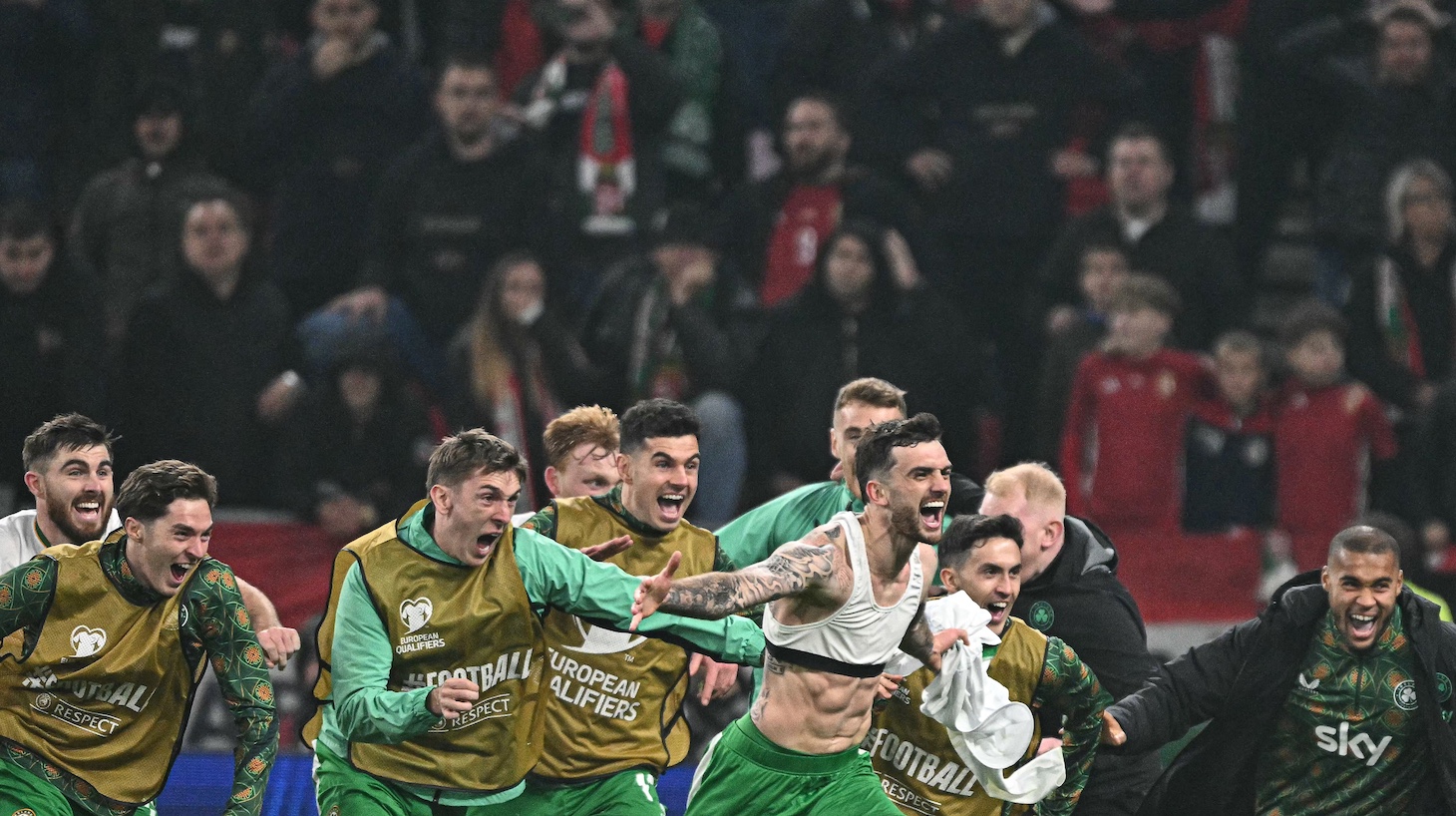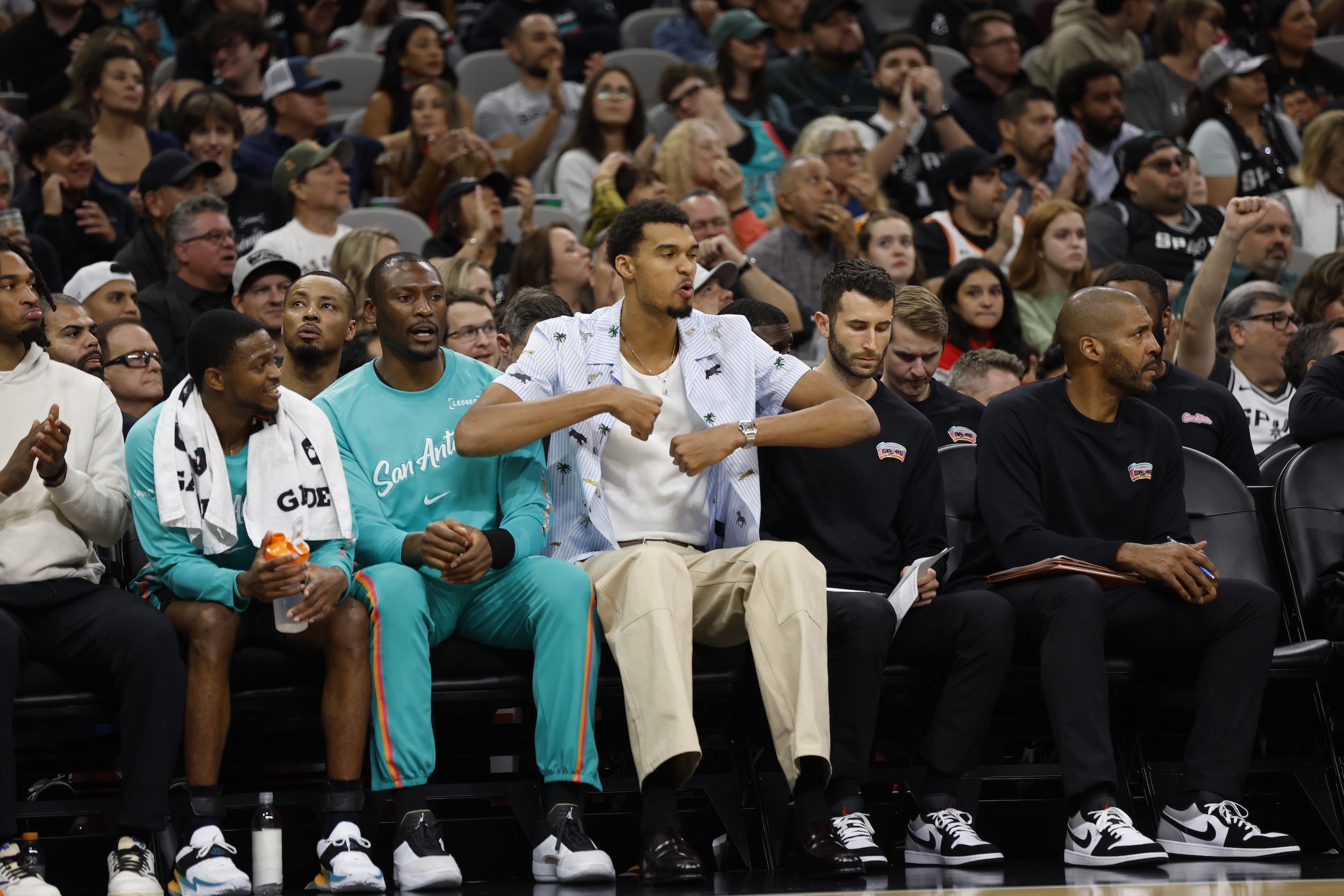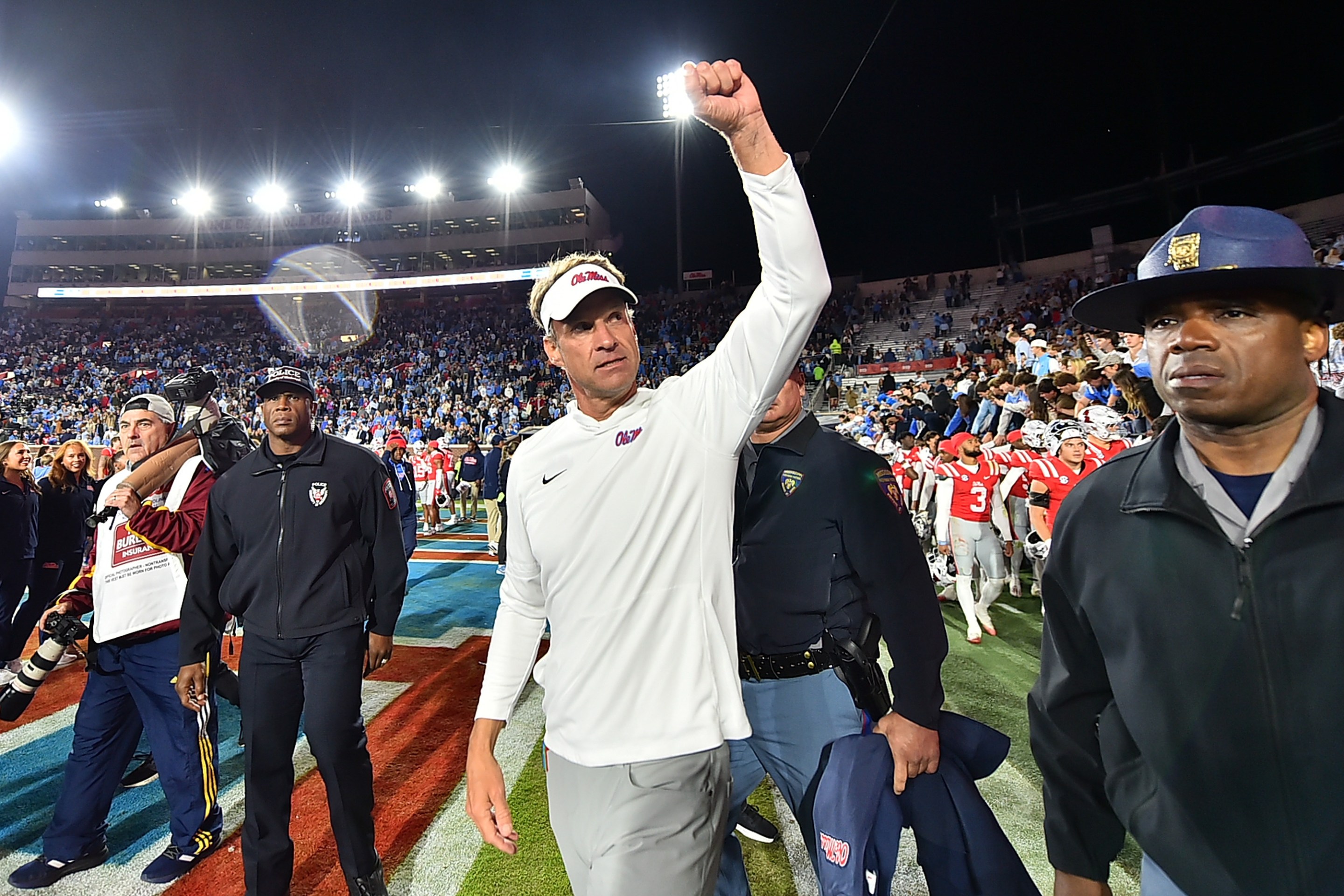There's no discounting the very real possibility that the best, coolest, most emotionally affecting moment of the entire soccer season has already happened. The moment in question came in a match contested by two solid but unexceptional teams, both of which are entirely devoid of anything close to a superstar, pitted in a duel for an important but hardly decisive prize. I'm certain there have been and will be hundreds of games just in this calendar year alone that outrank this one in terms of total viewership. And yet Sunday's match between Ireland and Hungary very well could go down as the most iconic one of the season, all because of its proximity to the most important sporting event of them all.
I don't want to delay too much in getting to the video, because the video really is the only thing that matters in this whole post, but I do think a little bit of context is appropriate. Ireland came into the present international break with a daunting but straightforward task: Sitting in third place in their World Cup qualification group, without any realistic hopes of topping the group and earning a direct spot in next summer's tournament, the Irish had to win both of their two remaining games in order to make it to the UEFA qualification playoffs, where two single-leg knockout games would determine their World Cup destiny. The rub was that the two matches were against the two best teams in the group, Portugal and Hungary.
The first challenge was arguably the more daunting one, as Ireland hosted Portugal, a team with realistic hopes of winning the whole thing next summer. For the hosts, the game was a must-not-lose affair. Powered by a brace from promising young striker Troy Parrott, and aided by a petulant Cristiano Ronaldo elbow that got him sent off an hour into the match, the Irish picked up the three crucial points. That set the stage for Sunday's showdown against Hungary. Portugal was already all but guaranteed the group's only automatic qualification place, but Hungary sat in second, needing just a draw to seal a spot in UEFA's playoffs. Ireland, away from home in a roaring stadium full of Hungarians desperate to see their boys back in the big dance for the first time in 40 years, had to win to survive.
For all but a few seconds of the match's 90 minutes plus stoppage time, Hungary had the playoff in its grasp. Daniel Lukacs opened the scoring for the Magyars just three minutes after the opening whistle, and Parrott's 15th-minute equalizer from the penalty spot was neutralized in the 37th minute when Barnabas Varga put Hungary back ahead. Hungary did well to maintain its lead for the bulk of the second half, until Parrott equalized again in the 80th minute.
The nerves shot through the roof from there. Hungary was still in the stronger position, as a draw would be enough to see them through to the playoffs, but the margins were razor-thin. Another Irish goal and the visiting team would complete its comeback and live to fight for their World Cup dreams for another day. The deadlock endured into the very final seconds of stoppage time, at which point Parrott and his compatriots did what instantly turned them into legends. Naturally, the moment can only be done justice by showing the Irish broadcast's narration:
With two goals against Portugal and another three against Hungary, Parrott more than met the moment presented to him over these past few days. So not only can you forgive him for his lack of erudition in his postgame interview, you can't help but be charmed by the 23-year-old's stunned bliss as his mouth struggles to articulate the meaning of the feats his feet have just performed:
FT: 🇭🇺 2-3 🇮🇪
— RTÉ Sport (@RTEsport) November 16, 2025
An emotional Troy Parrott reacts to securing a play-off place for Ireland in Budapest.
'This is why we love football because things like this can happen... I love where I'm from, my family are here, this means the world to me.'
📺 @rte2 @rteplayer pic.twitter.com/JnWcRdmt4b
Parrott was, of course, not alone in being overwhelmed by the tidal wave of joy. There are dozens of videos of Irish fans losing their minds after Parrott's winning goal went in (here's about nine minutes' worth of them), though I think this one is my favorite, the silence counter-intuitively strengthening the impact as you imagine the din:
The Troy Parrott reaction video from An Dun Rí in Dunmore is pretty special.
— Balls.ie (@ballsdotie) November 17, 2025
The urge to take the shirt off is just human nature pic.twitter.com/S0Y4FTS8Y0
As a soccer fan, and therefore as an almost necessary traditionalist, I have long bemoaned the accelerating expansion of the sport's major tournaments. In my lifetime the men's World Cup has doubled in size, going from a competition of 24 teams to, come next summer, 48. The inaugural women's World Cup in 1991 had a 12-team field, and by the next edition in 2031 it too will include 48. Even the formerly tight and tense Euros jumped from 16 teams to 24 in 2016. And that's all without even factoring in the unsustainably ballooning number of fixtures and new-fangled tournaments in club and international play alike. There's no telling when any of it will stop, especially since the driving force of it all is pure, unadulterated avarice.
However, I can't deny that my mewling about expansion has largely proven incorrect. The bigger fields in the Euros and the men's and women's World Cups have consistently provided thrilling, competitive matches, as the world's less-heralded national teams have tended to out-perform the low expectations of us skeptics who feared that a parade of blowouts would mar the spectacle. Not only that, but the increased exposure and financial windfall that the "smaller" nations stand to earn by being included in the field is sure to shrink the gap between the old guard and the upstarts even further. For better and for worse, decisions made from ignoble motivations are not necessarily doomed to failure.
At the same time, remarkable scenes like those we saw in Budapest on Sunday are less common in today's world than they were before. It once was the case that the final round of World Cup qualifying was one of the most exciting events the sport had to offer. It was so difficult to get to the big show that the campaigns of even the biggest and best national teams very often went to the wire. Just look at the absolutely insane stakes of Nov. 17, 1993 to see the canonical example. In contrast, qualifying for tournaments today is mostly pro forma for the best-known national teams. The format is increasingly forgiving for all the teams that should expect to make it, and if you still manage to flop you have no one but yourself to blame. What we're left with, then, is a bunch of international windows stuffed with empty games of little interest surrounding mammoth tournaments that, thankfully, still provide that spark—arguably even more so than before.
I don't know exactly what I think about that tradeoff. Is it better to have smaller, less globally representative tournaments that cap more captivating qualification campaigns, or is it better to have boring qualifiers, sprinkled with maybe a few surprising results you see and say to yourself "How cute" before forgetting about it, all to set up the mega-tournaments that hopefully make it all worth it? What I do know is that I loved seeing how much even just the chance to continue pushing for a place in the World Cup meant to the elated Irishmen and the crestfallen Hungarians, and that something is lost when we get fewer high-quality, high-intensity qualifiers like that. And what I'm most certain about is, no matter where anybody comes down on that quality vs. quantity debate, there will be no turning back.







